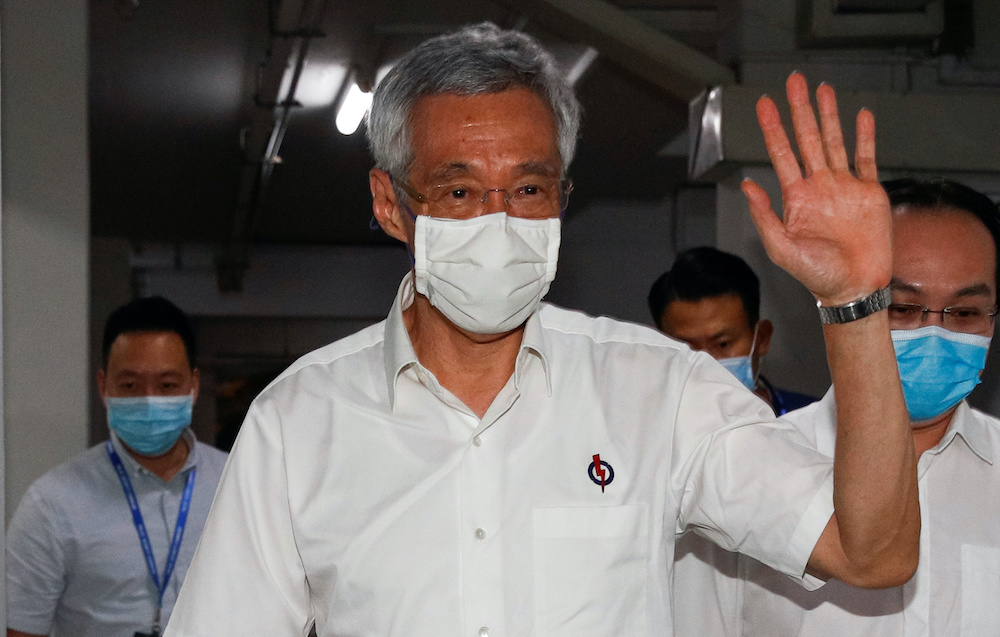SEPTEMBER 5 — In his annual National Day speech, Singapore's Prime Minister Lee Hsien Loong said claims that there is Chinese privilege in Singapore are entirely baseless.
This is important as the prime minister’s rally speech is keenly followed and the topic of Chinese privilege — which is effectively the idea that Chinese Singaporeans enjoy some benefits that minority Singaporeans do not — has been widely discussed for some years.
To make his point, PM Lee offered the fact that English (as opposed to Mandarin) is Singapore’s lingua franca as an example of a concession granted by the Chinese to the minorities.
But this makes very little sense as Mandarin was never the governing language of Singapore. The DNA of this country’s legal, business and education system has always been English.
It was also in English that many of Singapore’s founding ruling class — including the prime minister’s father and our modern nation’s founder Lee Kuan Yew — preferred to communicate
So, Chinese was never really on the table as a foundational lingua franca; so how can a concession ever have been given in this regard?
The very idea that this is a concession is also somewhat troubling. A concession is typically something that can be taken away – so does that mean Singapore might one day change course when the Chinese majority tires of its concession and we will become a Chinese-speaking nation?
Hard to imagine. Because of course, our extensive use of English has also proved to be hugely economically beneficial.
Secondly and even more confusingly, the prime minister in his own speech went on to state quite clearly that minorities in the country continue to face genuine instances of discrimination.
He gave the example of housing and employment where there is often a preference for Chinese over minorities. These are not minor issues; housing and employment are fundamental to virtually everyone’s life so if minorities face disadvantages in these areas, how can we say talk of Chinese privilege is baseless?
Perhaps, the prime minister meant to say that not all the Chinese in Singapore are privileged. This I agree with. I mean privilege is largely a matter of social and economic class and race/ethnicity is usually a secondary matter.
It is absurd to say that a wealthy Indian or Malay with an excellent education and a successful career is somehow less privileged than a struggling working-class Chinese person.
There are of course plenty of Chinese origin people in Singapore who are not very privileged.
However, again, if one compares like for like — a working-class Chinese Singaporean with a working-class Malay Singaporean or an elite Chinese Singaporean with an elite Indian Singaporean — I think you’d find that typically being Chinese confers an advantage.
Even an elite Indian will have difficulty renting a house or becoming prime minister as we keep being told Singapore isn’t ready for a non-Chinese prime minister etc.
So basically, one individual will face more obstacles than another even if their social background is similar just because of ethnic origin. Which brings me back to the question we are all asking — why dismiss the idea that being Chinese can give someone a disproportionate advantage in Singapore?
Now again I can see why there is resistance to the term Chinese privilege. It’s a phrase derived directly from the term White privilege which has become prominent in discussions surrounding race in the USA.
Singapore’s context is quite different from the USA’s and it's always better that we use our own terminology. In that sense I mean you could say we don’t need to say Chinese privilege, we can just say racism exists in Singapore and minorities are most often the victims of racism and we need to stamp this out.
The reality is race/inter-ethnic relations in Singapore are complex. There has been some progress over the years but there are also really intractable problems with housing, jobs, and social cohesion.
As a non-Chinese Singaporean, the speech was disappointing and confusing. And that I am reduced to describing myself as non-Chinese Singaporean is even more disappointing. Surely, a far better direction would be to work hard to dismantle the CMIO construct — to focus on class divisions and ensure equality of access across socio-economic groups.
If we dispose of this construct, we have no more Chinese, Malay and Indian Singaporeans but we only have Singaporeans — then the challenge will be to make everyone as privileged as possible.
However, the path we seem to be on now — where we simply say there is no problem — takes us further away from resolution.
*This is the personal opinion of the columnist.























